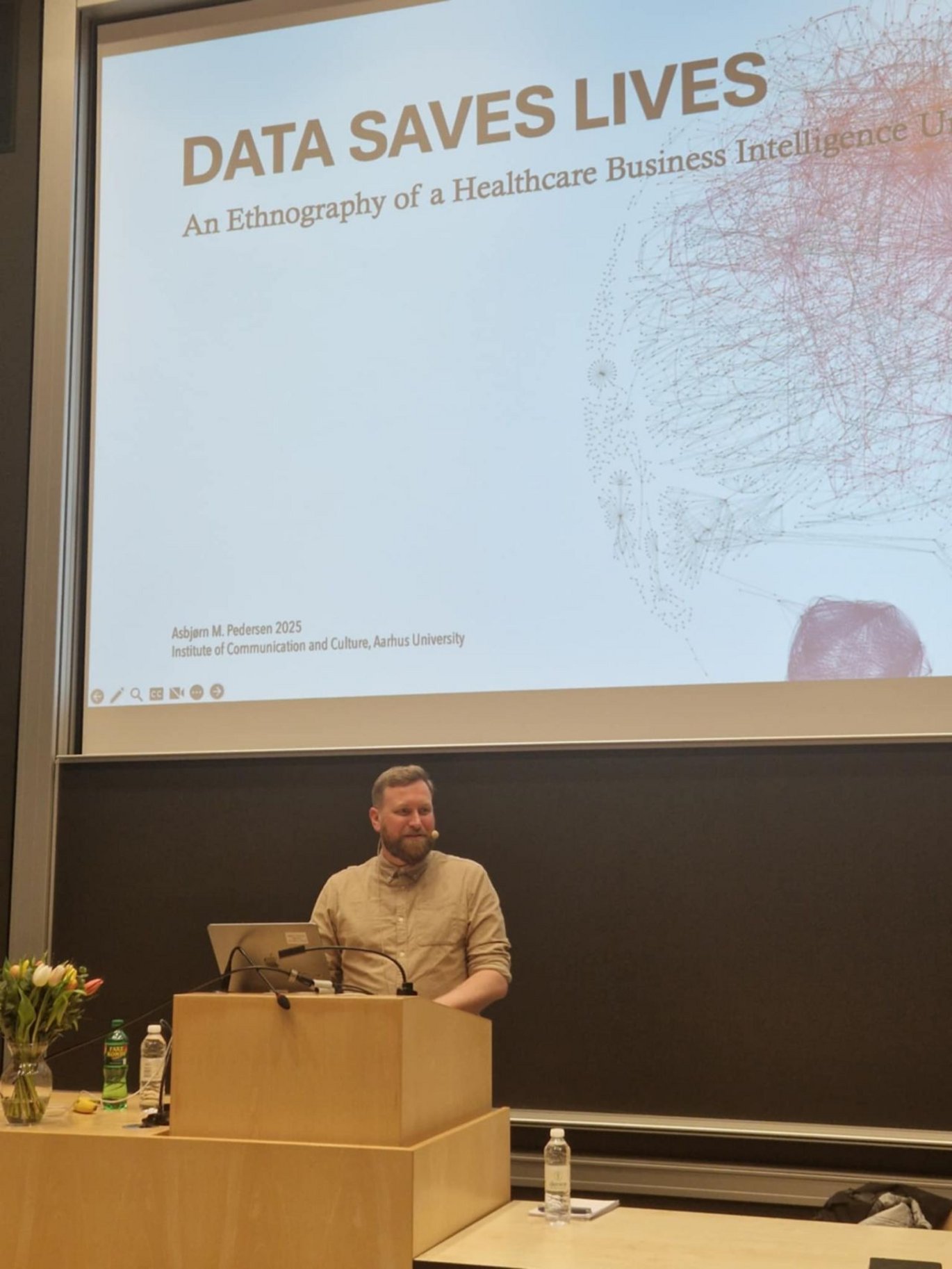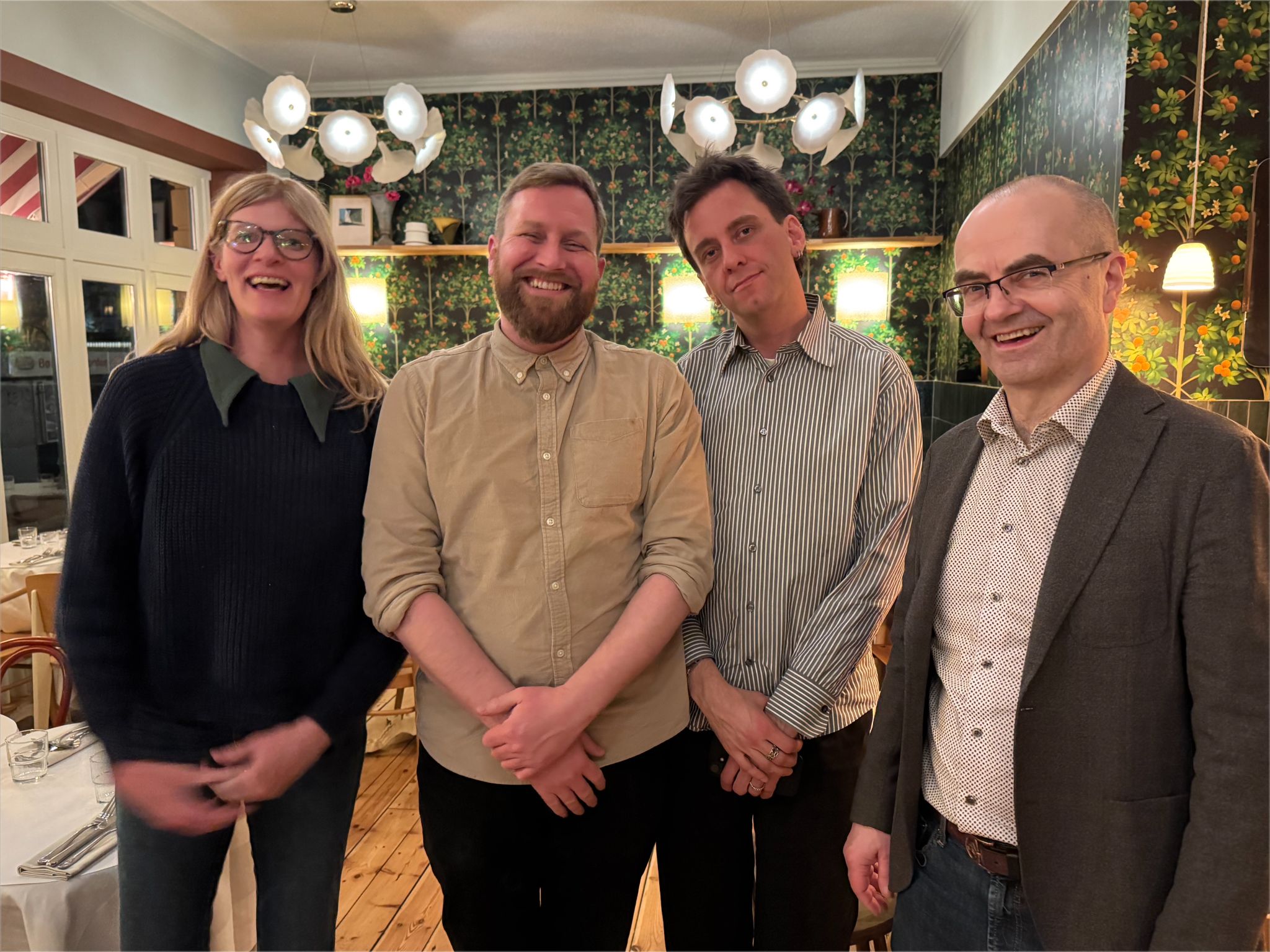Project News | Celebrating Asbjørn M. Pedersen’s PhD Defense
How does data actually become meaningful in healthcare? On March 18, 2025, Asbjørn Malte Pedersen defended his PhD at Aarhus University, shedding light on the often invisible work behind data-driven decision-making in hospitals.


On March 18, 2025, Asbjørn Malte Pedersen successfully defended his PhD dissertation at Aarhus University. The defense marked the conclusion of a multi-year research project that, through extensive ethnographic fieldwork, explores how data work unfolds in a regional healthcare Business Intelligence (BI) unit and across hospital departments.
The dissertation investigates how data is produced, transformed, and implemented as decision support in the healthcare sector—and how this process requires a combination of technical, social, and domain-specific skills. A central focus is how BI units and healthcare professionals collaboratively develop and adapt data and reporting tools to meet local needs—an ongoing effort that involves negotiation, cooperation, and contextual translation to make data meaningful in clinical and administrative settings.
The research highlights that data work is not just a matter of technology but also involves mobilizing engagement, building competencies, and adapting infrastructures. Data work is characterized by its invisibility, organizational tensions, and boundary work between professional groups, resulting in new roles and forms of collaboration.
The defense took place at Aarhus University, with the following assessment committee:
-
Associate Professor Kasper Schiølin, Aarhus University
-
Professor Gunnar Ellingsen, University of Tromsø
-
Associate Professor [name omitted], Arizona State University
The PhD project was supervised by Claus Bossen (AU), Pernille Scholdan Bertelsen (AAU), and Peter Danholt (AU).
Asbjørn Malte Pedersen’s dissertation contributes new insights into the socio-technical dynamics that make data work possible and meaningful, emphasizing the need to recognize the collaborative and contextual labor that underpins "data-driven" decision-making in the healthcare sector.
